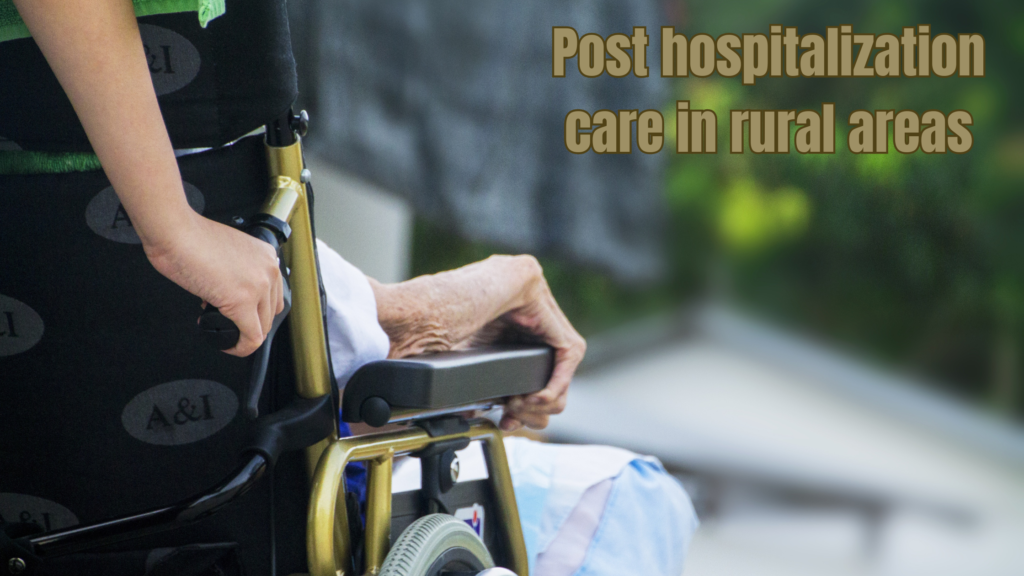🏡 WHAT IS POST-HOSPITALIZATION CARE IN RURAL AREAS?
Post-hospitalization care in rural areas refers to medical and non-medical support provided to patients after discharge from a hospital, especially those recovering from surgery, illness, or injury. In rural settings, it involves home visits by healthcare workers or trained caregivers, often due to lack of nearby hospitals or eldercare facilities.
🎯 OBJECTIVE
- To help patients recover safely at home after hospitalization.
- To reduce re-hospitalization by ensuring follow-up care.
- To provide basic medical attention, nursing, and rehabilitation in villages.
- To bridge the gap between hospital care and rural home environments.
✨ FEATURES
- Home Nurse or Health Worker Visits: For wound dressing, injections, catheter care, etc.
- Monitoring of Vitals: BP, sugar levels, temperature.
- Medication Management: Ensuring regular intake of prescribed drugs.
- Basic Physiotherapy: Exercises for stroke, injury, or post-operative mobility.
- Nutrition and Diet Support: Guidance for recovery-friendly food.
- Education to Family: Teaching how to care for the patient daily.
- Teleconsultation Support: For follow-up with city-based doctors (if available).
- Mobile Health Units (where available): Bring equipment or staff to rural homes.
🌿 NATURE
- Essential and Life-Supporting: Especially critical in areas with poor access to clinics.
- Low-Cost or Subsidized: NGOs or government schemes may offer services at low rates.
- Community-Oriented: Often delivered by local ASHA workers, ANMs, or trained rural nurses.
- Adaptable: Modified to local resources (power, roads, availability of staff).
✅ ADVANTAGES
- Supports rural elderly and chronically ill patients at home.
- Avoids costly and difficult travel to distant hospitals.
- Improves recovery rate through timely home interventions.
- Reduces burden on family caregivers.
- Saves cost compared to re-admission or long stays in urban hospitals.
- Encourages use of local health resources (Primary Health Centres, PHC nurses).

